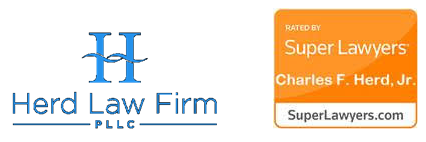Motorcycle Crash Checklist: How to Collect Motorcycle Crash Evidence in 2023
 Motorcycle crashes are devastating and tragic, causing serious injuries, property damage, and even death. According to the National Highway Traffic Safety Administration (NHTSA), motorcycle accidents accounted for 14% of all traffic deaths in 2020.
Motorcycle crashes are devastating and tragic, causing serious injuries, property damage, and even death. According to the National Highway Traffic Safety Administration (NHTSA), motorcycle accidents accounted for 14% of all traffic deaths in 2020.
If you are involved in a motorcycle accident, you may be entitled to compensation for your losses, but you will need to prove that the other party was at fault, and that you suffered damages resulting from their negligent driving.
To do this, evidence that supports your claim must be collected and preserved. Evidence comes in many forms, such as photos, videos, witness statements, police reports, medical records, and expert opinions. However, not all evidence is equally valuable or reliable, and some evidence may be lost or destroyed over time. Therefore, it is important to know what kind of evidence you need to collect, and how to obtain it as soon as possible after the accident.
Here are some steps you can take to collect motorcycle evidence in 2023:
- Call 911 and report the accident. This ensures that the police and emergency services arrive at the scene and document the incident. This report makes note of important information, such as the date, time, location, weather conditions, traffic signals, road markings, vehicle descriptions, driver information, witness information, and any citations or violations issued. The police report also can indicate who was at fault for the accident, based on the officer’s observations and investigation. A copy of the police report can be requested from the local law enforcement agency, or online.
- Take photos and videos of the scene. Use your smartphone or camera to capture images and footage of the damage to your motorcycle and the other vehicle(s) involved, the position and location of the vehicles, the skid marks, the debris, the injuries, and anything else that may be relevant to the cause or severity of the crash. Photos and videos can provide visual evidence of what happened and how it happened, as well as show the extent of your damages. Try to take photos and videos from different angles and distances, and make sure they are clear and focused.
- Get witness statements. If there were any people who saw the accident or its aftermath, such as pedestrians, bystanders, or other drivers, try to get their names and contact information. Witnesses can provide independent and unbiased accounts of what they saw or heard, which can corroborate or contradict your version of events. Ask them if they are willing to give a written or recorded statement about the accident, and if they are willing to testify in court, if necessary.
- Collect insurance information. Exchange insurance information with the other driver(s) involved in the accident, so a claim can be filed with their insurance company, or your own insurance company if you have uninsured/underinsured motorist coverage. You will need to provide your name, address, phone number, license plate number, driver’s license number, insurance company name, policy number, and claim number, and get the same information from the other driver(s). Do not admit fault or apologize for the accident, as this could be used against you later.
- Seek medical attention. Even if you feel fine after the accident, you should still see a doctor as soon as possible. Some injuries may not show symptoms right away, but they could worsen over time or lead to complications. A doctor can examine you for any injuries, diagnose your condition, prescribe medication or treatment, and provide you with a medical report that details your diagnosis, prognosis, treatment plan, and expected recovery time. This medical report can serve as evidence of your injuries, their impact on your health and quality of life, and your ability to file for compensation later.
- Hire a lawyer. A motorcycle accident lawyer, such as those at the Herd Law Firm, can help you with every aspect of your claim, from gathering evidence, to negotiating with insurance adjusters, to filing a lawsuit if necessary. An attorney will advise you on your legal rights and options, protect you from unfair or lowball settlement offers, and represent you in court if your case goes to trial. Additionally, an attorney has connections with expert witnesses who can testify on your behalf about the cause of the accident, the extent of your damages, and the value of your claim.
 By following these steps, you can collect strong and compelling evidence, which increases your chances of getting fair compensation for your motorcycle crash injuries and losses.
By following these steps, you can collect strong and compelling evidence, which increases your chances of getting fair compensation for your motorcycle crash injuries and losses.
We at the Herd Law Firm, PLLC, are drivers and motorcycle riders, too! We support drivers, bikers and motorcyclists injured on the road, and have successfully represented such victims seeking the assistance and compensation they so need and deserve.
8/21/2023







